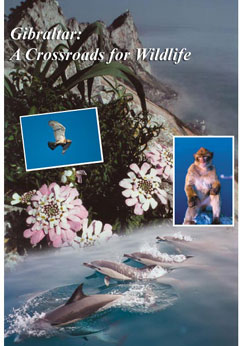 |
.Gibraltar
A Crossroads for Wildlife
Gibraltar is a narrow peninsula, 7km long, attached to Iberia by a low, sandy isthmus. A Mediterranean wildlife community survives on the impressive limestone cliffs and slopes with their scrub, patches of woodland, caves and rocky shoreline. A steep cliff rises from the Mediterranean on the east to 398 metres. On the west, the Rock slopes more gradually through scrubland, with the city (where most of the 28,000 people live) nestled at the foot, partly on land claimed from the sea. To the south are a series of stony terraces.
The Gibraltar Ornithological & Natural History Society, a Partner of BirdLife International and of the Forum, is the membership-based voluntary organisation working to study, protect and manage the fauna and flora.
Urban development has been dramatic since the early 1900s. This continues, with loss of natural habitat. Important plant and animal species are protected, and much of the Mediterranean scrub and cliffs are within a nature reserve. There is a continuing need to extend protection to other sites including the sea.
A longstanding problem is commercial net-fishing and seabed-raking in territorial waters by Spanish fishermen, with an adverse effect on marine life.
Environmental impacts that need management include intense use of land and sea for tourism, and sea and air pollution from industrial activities in the region. Exotic invasive plant species present problems; there is potential for work in habitat restoration and re-introduction of plants and animals to restored or newly protected areas.
|
 |
|











